FHA Loan Requirements, Rates And How To Apply
What is an FHA Mortgage Loan?
A Federal Housing Administration (FHA) loan is a type of mortgage that is insured by the federal government and issued by FHA-approved lenders. Unlike many conventional mortgages, FHA home loans allow for a lower minimum down payment and are accessible to applicants with credit scores that might not qualify for a conventional mortgage. This makes them an ideal choice for first-time homebuyers and individuals with lower credit scores looking to buy a home.
FHA loans are designed to support low- to moderate-income families in achieving homeownership. With their flexible loan requirements, including lower credit score requirements and a manageable minimum down payment, FHA loans make it easier to qualify for a home loan. Moreover, the FHA loan limit and mortgage insurance premium are set to ensure that borrowers are not overburdened with their monthly mortgage payments.

Today’s Mortgage Rates
Your rate will be different depending on your credit score and other details. Get personalized rates and a mortgage recommendation designed for you.

FHA Loan Requirements and Highlights
The Federal Housing Administration (FHA), part of the Department of Housing and Urban Development, was created in 1934 to help more Americans get into their own homes. FHA loans offer these key features:
- Low Down Payments: You can start with as little as 3.5% down, making it easier for first-time home buyers compared to traditional loans.
- Flexible Credit Scores: Even if your credit score isn’t perfect, you might still qualify for an FHA loan, which is great news for many buyers.
- More Room for Debt: FHA loans allow a higher debt-to-income ratio, up to 50%, giving you more flexibility than conventional loans.
- Choice of Loan Rates: You can pick a loan that has a fixed interest rate or one that can change, which helps fit your financial plan.
- Property Types: Whether it’s a single-family home, a two- to four-unit multifamily home, a condo, or even a manufactured home, these can be used for various kinds of properties.
- Down Payments and Closing Costs: Gifts from family or your employer can help cover your down payment, and sellers can help with up to 6% of closing costs.
- FHA Mortgage Insurance: Remember, with FHA loans, you’ll need to pay for mortgage insurance, which protects the lender if you can’t pay back the loan. This is something to consider as it adds to the loan’s cost over time.
How to Qualify and Apply for an FHA Loan
What’s required for an FHA loan in Massachusetts tends to be more accommodating than for a conventional loan. You need less money for a down payment with an FHA loan, and you may qualify even if your credit score is lower or you’ve faced bankruptcy or foreclosure before. While FHA loans are often a good fit for first-time buyers, they’re also available to those buying a second home or looking to refinance.
- A minimum credit score of 500 is necessary. If your score ranges between 500 and 579, you’re eligible for an FHA loan but will need a 10% down payment. With a score of 580 or above, you may qualify for a loan with a down payment as low as 3.5%.
- Your debt-to-income (DTI) ratio is also important. Lenders use this to gauge your ability to manage a monthly payment on a home mortgage. Ideally, your DTI should be 43% or lower. However, if your credit score is higher or you have extra cash reserves, lenders might be more flexible.
- Mortgage insurance is a must for FHA borrowers. This includes an upfront mortgage insurance premium (UFMIP) of 1.75% of your loan amount, paid at closing. Additionally, you’ll pay a monthly insurance premium (MIP) that varies from 0.45% to 1.05% of your loan amount, annually divided by 12. This insurance is crucial as it protects the lender over the life of the loan.
- An FHA appraisal is mandatory to ensure the home meets the FHA’s safety, security, and soundness standards. This appraisal is generally more stringent than those for conventional loans and is carried out by an FHA-approved appraiser.
The home you buy must be your primary residence for at least the first year. This requirement underscores the FHA’s goal of helping people become homeowners, rather than investors.

What Are the Different Types of FHA Loans?
Below are some commonly sought-after loan types and requirements for FHA loan programs
FHA 203(b) Home Loan
The Basic Home Mortgage 203(b) is the cornerstone FHA loan for single-family homes, designed exclusively for primary residences. Vacation or second homes do not qualify under this program, ensuring that FHA loans are utilized by those seeking a home rather than an investment property.
FHA Refinance Loans
Refinancing your FHA loan can be advantageous if you’re aiming to secure a lower interest rate, reduce your loan term, or obtain funding for significant expenses like home renovations. Here are your options: FHA Rate and Term Refinance: Ideal for lowering your mortgage rate or changing the loan’s term. FHA Streamline Refinance: Offers a simplified process without the need for a new appraisal, saving both time and paperwork. FHA Cash-Out Refinance: This replaces your existing loan with a larger one, with the difference paid out in cash, useful for larger financial needs. FHA 203(k) Refinance: Allows the incorporation of repair or renovation costs into your mortgage, with projects needing to meet FHA standards.
FHA Renovation Loans
The FHA 203(k) program is divided into two types, catering to different renovation scopes: Standard 203(k): Supports significant renovations, including structural changes, with financing available for projects over $5,000. This can cover kitchen or bathroom remodels, flooring, or energy-efficient modifications, up to 110% of the post-improvement appraisal value. Limited 203(k): Suited for smaller projects up to $35,000, perfect for cosmetic updates or minor repairs. This can include kitchen or bathroom updates, new flooring, or window replacements, also up to 110% of the home’s value after improvements.
Other Specialty FHA Loans
Energy-Efficient Mortgages: These are available for financing improvements aimed at energy conservation. Qualification requires a professional energy assessment to determine the potential efficiency gains. Manufactured Homes: FHA loans can also finance manufactured homes, provided they meet HUD’s stipulations, such as a minimum size of 400 square feet and installation on a permanent foundation.

What Are The FHA Minimum Property Requirements?
When you get an FHA loan, the home you buy must meet specific safety, security, and soundness standards. These FHA minimum property requirements ensure that the home is:
- Safe: The house must provide a secure and healthy living environment for its occupants. This means everything from the electrical system to the plumbing must be in good working order, safeguarding against hazards that could threaten the homeowner’s safety.
- Secure: The property should offer adequate protection to its residents. This includes working locks on doors and windows, ensuring the home is safeguarded against external threats.
- Sound: Structural integrity is crucial. The home shouldn’t have any significant defects, like a damaged roof or unstable foundation, that could impact its stability and safety.
These standards are important not just for the buyer’s well-being but also from a financial perspective. For lenders, the property acts as collateral for the loan. A home that fails to meet these requirements can dramatically decrease in value, representing a higher risk for FHA lenders and borrowers alike. The property needs to be move-in ready, meeting a baseline of livability to protect the investment and ensure the home is safe, secure, and structurally sound from the start. If the home does not meet these standards, borrowers might consider an FHA 203k loan.
Find out if an FHA home loan is right for you.
See rates, requirements and benefits.
FAQ
Find Out Answers Here
Conventional mortgages hold the title as the most popular type, with lenders originating more than 4.1 million conventional loans in 2022. This contrasts with over 1.3 million nonconventional mortgage originations, including FHA, VA, and USDA mortgages, highlighting the diverse needs of homebuyers.
VA loans often feature the lowest interest rates, benefiting from the support of the Department of Veterans Affairs. However, FHA mortgages also offer competitive rates, particularly for those with less-than-perfect credit histories. Ultimately, securing the best rates depends on various factors, including credit score, debt-to-income ratio, property type (single-family home, condo, or multi-family and down payment size.
FHA mortgages are generally considered the easiest to qualify for, designed to assist those with lower incomes or less-than-ideal FICO scores. If you’re finding it challenging to qualify for a conventional mortgage, an FHA loan could be a viable path to homeownership.
Many first-time homebuyer programs allow buyers who haven’t owned a property in the past three years. This includes divorced spouses who have only jointly owned a home with an ex-spouse.
Choosing the best mortgage lender will depend on the home loan options you’re applying for, how much you want to borrow, the term of the loan, mortgage interest rate, and many other factors. Review our guides for best mortgage lenders, top FHA lenders, and best VA lenders.
Choosing the right mortgage is a significant decision that will impact your finances for years to come. Whether you’re considering a loan backed by the U.S. Department of Veterans Affairs to take advantage of lower mortgage rates without the need for upfront mortgage insurance or exploring a USDA mortgage to purchase a home in a rural area, tools like a mortgage calculator can be invaluable. They help you understand the total loan cost, including the life of your loan and potential higher monthly payments. Remember, making a down payment can reduce your monthly obligations and increase the equity in your home from the start. Ultimately, the best path forward involves careful consideration of your ability to qualify for a mortgage, the type of loan that suits your financial situation, and how long you plan to stay in your home, ensuring you select the mortgage that aligns with your long-term goals.


